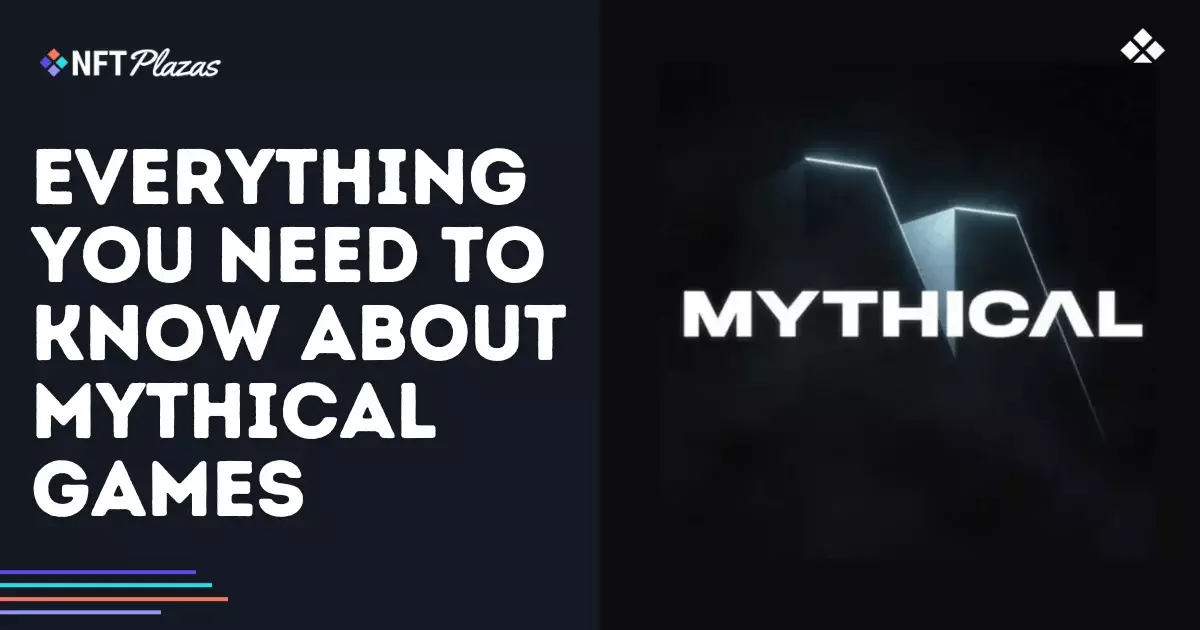Mythical Games entered the scene amid the chaos of cryptocurrency’s rapid ascent, wielding a daring vision: to revolutionize gaming by granting players true ownership over their digital assets through blockchain technology. Founded by veteran developers from the AAA gaming industry, particularly those with roots at Activision, Mythical positioned itself as an innovator at the intersection of entertainment and finance. Their goal was lofty: create a gaming ecosystem where digital items are not just in-game collectibles but real assets that can be bought, sold, and traded outside the game environment. This premise reflected a fundamental shift from traditional gaming economics, which historically treated in-game items as non-transferable or mere pixels. Mythical’s leadership, including industry veterans like John Linden and Jamie Jackson, brought credibility and a wealth of experience, fueling investor confidence and propelling the company to unicorn status within a short span.
However, beneath the glossy surface of high-profile funding rounds and strategic partnerships lay a core challenge — the inherent volatility of the blockchain space and the disconnect between innovative promise and user experience. Mythical’s early achievements, such as launching Blankos Block Party on the Epic Games Store, demonstrated the potential for blockchain-based gaming to reach mainstream platforms. Yet, these victories also exposed the fragility of their model: how do you sustain engagement when your novelty hinges on blockchain tech that remains complex and opaque to many players?
Promises Made, Promises Broken?
Mythical’s platform was designed to be user-friendly on the surface: players could sign up with just an email, removing the immediate burden of understanding blockchain intricacies. But beneath this simple onboarding, blockchain assets—NFTs—remained wrapped in layers of technical complexity. While the company promoted the idea of ownership, it often glossed over the fact that such ownership is tethered to volatile markets, regulatory uncertainties, and the nascent state of blockchain technology itself.
The company’s strategy of integrating well-known brands such as NFL and FIFA showcased their ambition to normalize blockchain assets within popular culture. These collaborations created hype and legitimacy, but the real question is whether they generated sustainable engagement or merely capitalized on fleeting interest. For instance, NFL Rivals soared to impressive download figures and fan engagement, yet the long-term viability of such titles remains questionable when the underlying blockchain mechanics are not central to gameplay but serve more as a novel side spectacle.
Furthermore, Mythical’s diversified portfolio—ranging from digital card games to racing franchises—indicates an effort to find viable niches where blockchain can enhance rather than detract from gameplay. Yet, despite these efforts, the gaming community remains largely skeptical. Many players see blockchain games as mere gimmicks, driven by speculative assets and short-term marketing tactics rather than genuine innovation. The shutdown of the PC version of Blankos and the pivot to mobile signals that what worked in theory often flounders in practice, forcing Mythical to rethink its approach and seek survival through adaptation rather than steadfast ideology.
The Mythical Mirage and Operational Turmoil
The internal dynamics of Mythical further illustrate the volatility inherent in pioneering disruptive technology. The departure of co-founder Rudy Koch and other executives who founded a competing company, Fenix Games, was a stark demonstration of internal fractures. Their lawsuit over proprietary plans, settled only after significant internal strife, underscored how aggressive expansion and ambitious visions can fray the fabric of even the most promising startups.
The broader crypto downturn compounded these problems, forcing Mythical to lay off a portion of its workforce and reevaluate its growth trajectory. This lesson underscores an uncomfortable reality: in the pursuit of technical innovation, the economic sustainability of such ventures remains precarious. The allure of rapid growth and high valuations often masks underlying weaknesses—chiefly, the inability to deliver consistent user engagement beyond the initial novelty phase.
The failure of Blankos to maintain long-term interest exemplifies this point. Despite initial excitement and celebrity collaborations, keeping players invested in blockchain-exclusive assets proved difficult. The shift from PC to mobile may suggest a realistic acknowledgment that mainstream players prefer accessible, seamless experiences over blockchain’s technical barriers. This pivot highlights a critical insight: blockchain, in its current iteration, is better suited as an enhancement rather than the core of gaming experiences.
The Future of Web3 Gaming: Dream or Dilemma?
Mythical’s trajectory reveals a paradox that shadowed many blockchain enterprises: substantial innovation often clashes with mainstream appeal. While they have undeniably advanced the concept of digital ownership and integrated blockchain into popular titles, the technology itself remains a contentious hurdle. For web3 gaming to truly break into the mainstream, the process must become invisible to users—no small feat in an industry where ease of use and entertainment value are king.
Moreover, regulatory uncertainties and market fragility threaten to undermine these pioneering efforts. Mythical’s experience underscores the difficulty of aligning market expectations with technological realities. The company’s high-profile partnerships and investments are promising, but they also risk overhyping a technology that has yet to prove its long-term viability beyond speculative hype.
If web3 gaming is to mature and become a genuine part of the mainstream ecosystem, it must shed its blockchain-centric identity and focus on delivering engaging, accessible experiences rooted in proven game design principles. Mythical has started down this path, but whether it can sustain momentum amidst market turbulence and skepticism remains uncertain. What is clear, however, is that their efforts have already shifted the conversation: gaming is no longer just about pixels and stories but about ownership and economic agency—concepts that, if properly integrated, could redefine the industry’s future.


Leave a Reply